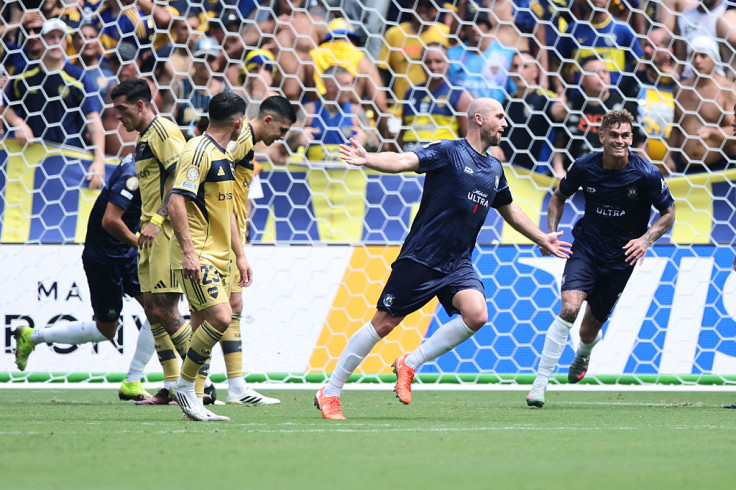
Shortly after being elected FIFA president, Gianni Infantino floated the idea of expanding the Club World Cup — a tournament that, at the time, featured the winners of each continent's top club competition — into a larger, more globally appealing event.
"Today, football is not just about Europe and South America. The world has changed, and that's why we need to make the Club World Cup more interesting for teams and also for fans around the world," Infantino said in a 2016 interview.
Two years later, he formally proposed a 24-team tournament. It was originally scheduled to debut in China in 2021, but his plan was shelved due to the COVID-19 pandemic. The idea remained on hold until December 2022, when FIFA gave final approval just days before the World Cup final in Qatar.
The revamped Club World Cup now taking place in 2025 features 32 teams and reflects Infantino's vision of bringing clubs from all over the world to compete against the sport's elite and test their quality on a global stage.
Midway through the current tournament, players and coaches who spoke with The Latin Times have already said they welcome the opportunity and praised the level of competition.
Just minutes after scoring a late goal to secure Inter Milan — last season's UEFA Champions League runner-up — a win over Japan's Urawa Red Diamonds, Argentine forward Valentín Carboni reflected on how competitive the global game has become.
"We've seen how much intensity teams have brought to the tournament," Carboni said. "Maybe European teams aren't used to playing against these kinds of opponents, but soccer today is a very even sport, every game is massively difficult."
Over the first 10 days of the competition, Inter Milan wasn't the only major club pushed to the limit.
Saudi side Al Hilal held European powerhouse Real Madrid to a draw in their group stage opener. The next day, Brazil's Botafogo, reigning Copa Libertadores champion, stunned the world by defeating Paris Saint-Germain, the current UEFA Champions League winner. The result highlighted just how closely contested the tournament has become, as well as underscoring Infantino's original vision: to test the gap between the global elite and everyone else.
"That's the beauty of this tournament — you get different styles of football from all over the world competing against each other," said Urawa Reds midfielder Samuel Gustafson after his team's narrow 2-1 loss to Inter.
Asked whether clubs from outside Europe are closing the gap, Gustafson was cautious.
"This tournament is great for that," he said. "But teams are in different phases of their seasons. Inter just played the Champions League final a few weeks ago...we're in the middle of ours. It's hard to fully judge. But today, we gave everything we had."
While few teams have followed Botafogo's lead in defeating European opponents, many players and coaches said the experience of competing at this level has been valuable.
After Seattle Sounders wrapped up their run in the tournament, head coach Brian Schmetzer said the competition would benefit his squad moving forward.
"The thing our players learned in these three games is that the intensity is just a little notch higher," Schmetzer said. "This experience will make our players better. It gave them a better idea of what it takes to compete at the highest level of our sport."
His thoughts were echoed by PSG manager Luis Enrique, who praised the expanded tournament.
"It is a brilliant idea," he said. "It might be the first time we're seeing clubs from every continent — each with its own style and philosophy — playing against each other. I find that very appealing. I think this will become a benchmark competition in the future."
🔝🏆 "EL FÚTBOL SUDAMERICANO ES POTENCIA MUNDIAL"
— Diario Olé (@DiarioOle) June 23, 2025
Luis Enrique en conferencia de prensa 🗣️ pic.twitter.com/KhyfCZjvTC
Perhaps the tournament's most compelling story so far came from one of its smallest clubs.
New Zealand's Auckland City, the only semi-professional team in the 32-club field, stunned fans with a 1-1 draw against Argentine powerhouse Boca Juniors.
Most of Auckland City's players hold other jobs to supplement their football careers, yet they managed to hold their own against one of South America's most storied clubs.
"It's probably still sinking in," said Christian Gray, who scored the equalizer, in an interview with The New Zealand Herald. "I'm so happy for the club, for the boys, for everyone involved.
"It's surreal. These guys are massive names — and we're from little old New Zealand," Gray added.
© 2025 Latin Times. All rights reserved. Do not reproduce without permission.







